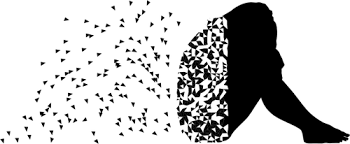Culture of Success: Response to the Letters to the Editor

Photo by: Public Domain Vectors
It’s the most wonderful time of the year! There’s snow, the holidays are almost upon us – and it gets dark at 4:30 PM. Add in our mountains of assignments and extracurricular activities. Don’t forget the usual angst of being young, coupled with the craziness of today’s world (another shooting, more bad news about the climate, constant political strife, all that fun stuff).
It’s no wonder that mental health issues are on the rise in young people.
Mental illness can be the result of a lot of things. Chemical imbalances, genetics, and traumatic experiences all contribute to your likelihood of developing a mental illness.
But it seems to me that, in today’s world, our culture plays a bigger role than ever before. Social media is a major factor, of course, as are the global issues that keep us up at night (re: shootings, climate, politics, etc.). But I think there’s some blame to be placed on our smaller world at Millikin and our national culture, too.
Think about it. We’ve created an environment in which constant success is expected. There’s no room for doubt, and the mistakes you make are documented online. We have convinced ourselves that anything less than perfection is failure.
This is especially true in higher education. The pressure is on and subtle comparisons happen all the time. We brag about how many credits we’re taking, how many hours we’re working, how late we stayed up to do our homework. The implication is that if you aren’t also sacrificing sleep and sanity, then you aren’t trying hard enough.
It’s extremely toxic.
I don’t mean to act above this; I’m not. I’ve fallen into the same trap of comparison. I berate myself for going to bed before midnight. I wonder if I should sign up for more classes. If my friends can handle it, can’t I, too?
I feel bad when I’m not doing something school-related. If I’m not absolutely exhausted at the end of the day, I feel guilty. I only feel like I’m doing my best if I am completely burnt out.
That’s so messed up! I recognize this, but here I am, typing this article as I try to ignore the swell of panic at my long to-do list and the exhaustion that tells me I should take a break.
In the bustle of our daily lives, it’s good to step back every now and then and take inventory. It’s like the record-scratch-freeze-frame moment at the beginning of movies. “Yup, that’s me. You might be wondering how I got here.”
How did I get here? How did I develop such an unhealthy mindset?
I think it comes down to our culture. We expect so much from ourselves. We have created a society – both at Millikin and on a national level – that prioritizes outward signs of success. Forget how you feel. How much have you accomplished?
Additionally, we emphasize the importance of identity to an unhealthy degree. We encourage people to explore their identity, then finalize and label it. Of course, we should all strive to know who we are. But this expectation – that you know, without a doubt, everything that you want and need and stand for – can weigh really heavy.
This is especially hard on college students. We’re young and still trying to figure everything out. But if you don’t know who you are and what you want out of life, then you feel like you’re somehow behind.
That’s flawed for a lot of reasons, we’re human beings, our identities change as we grow, etc., but also because this is the time when we aren’t necessarily supposed to know everything. This is when we’re supposed to be exploring. So why do we make people feel bad when they’re still figuring it out?
Maybe it’s because we’re trying to make ourselves feel better for not really knowing, either.
There is no timeline here. Life isn’t a race. And yet we’re all pushing toward the next marker, casting furtive glances at one another, comparing ourselves and hoping that we can keep up. This pressure has created an environment that can be extremely overwhelming.
While our culture is probably not the primary cause of our generation’s increased mental health issues, it definitely plays a role. We’re so preoccupied by our need for outward success that we don’t give ourselves permission to be young and messy and unsure. Furthermore, we don’t recognize that we’re unhappy until we’re really struggling.
As we approach the holiday season (and the winter solstice, thank God; sunlight will return soon!), I’m making an early New Year’s resolution. No more comparisons. No more guilt. If I’m tired, I’m going to sleep instead of pushing myself to burnout. I am going to take care of myself. I will prove that failure happens and it sucks but I will survive it.
Next year, let’s cut ourselves some slack. We’ll figure it out; it will all come together. And in the meantime, there’s something kind of awesome about being in the middle of the mess.
